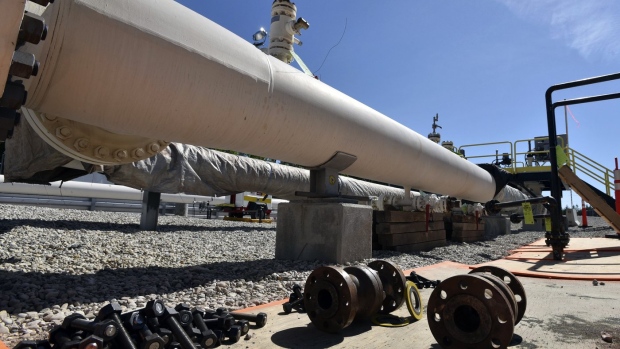High costs putting farming out of reach for young people, affecting all Canadians
, The Canadian Press
When Myriam Landry started raising goats for their meat in 2018, she started small — because she had to.
She opened Chèvrerie aux Volets Verts, in St-Esprit, Que., with two goats; she couldn't afford a large herd and chose animals small enough that she could handle on her own while pregnant with her third child.
"I should have started bigger … but then I would have needed more money, which I didn't have," Landry, 33, said in a recent interview from her farm 50 kilometres north of Montreal.
"It's really hard for young people to start … I don't even have land, I don't have tractors, even my goats (I paid for) on loans."
The rising cost of land is making it harder than ever for young farmers to enter the business. And those barriers come at a time when a growing number of older farmers are planning to leave the industry. Organizations promoting farm succession worry that if young people are unable to enter the industry, only the largest companies will endure, reducing the diversity of crops and livestock and widening the gap between Canadians and their sources of food.
"The main challenge right now is really the cost of agricultural land," said Benoît Curé, co-ordinator of ARTERRE, a program that pairs aspiring farmers with landowners and farmers planning to retire.
Curé said multiple factors are contributing to rising prices, including real estate speculation — especially near Montreal suburbs — and strong competition for the best soil in a province where only around two per cent of the land is suitable for farming.
Last year, the price of agricultural land rose by 10 per cent, which isn't unusual, he said in a recent interview. "Over the last 10 years, we've had annual increases of about six to 10 per cent." The average dairy farm in Quebec is now valued at almost $5 million, he said, almost double what it was in 2011.
With 20 per cent down payments usually expected for farm purchases, "you have to almost be a millionaire before starting your agricultural business," Curé said. If young people can't afford to get into farming, then most rural communities risk being left with two or three large farms, he lamented.
Landry, like more than half of the aspiring farmers who have worked with ARTERRE, is renting her space. Her small operation is located on a former dairy farm that's now used for hay and cereal crops. Her farm has now grown to 40 female goats and a handful of males for breeding. There's enough space in her barn for 60 females, she said, but she has enough demand to support 100.
And while starting small has allowed her to open a farm, it has also come with its own challenges. Goat meat, she said, is uncommon in Quebec, and financial institutions are hesitant to lend to money for an operation they aren't familiar with.
Lenders, she said, "don't want to finance it, because they don't know it, and that makes it really hard."
Farming has always been a capital-intensive industry — with high costs for land, equipment and inputs — but prices across Canada have risen above the revenue that can be generated from that land, said Jean-Philippe Gervais, the chief economist of Farm Credit Canada, a Crown corporation that lends to farmers.
"The relationship between the price of the land and the revenue that can be expected from the land — that ratio is the highest we've ever seen," Gervais said in a recent interview. "So we're really at prices that are the highest we've ever seen, not just in absolute value in dollars per hectare, but also relative to what can be generated in income."
It's now rare for farmers to turn a profit from land they buy just by farming it, he said, adding that most farmers only make their money back when they sell. Large, established farms can fund the purchase of more land from the revenue generated on land that's already been paid for, he added.
But even large farms are challenged by high costs. A survey of more than 3,600 farmers released last month by Quebec's farmers association found that 11 per cent are thinking about closing over the coming year. The Union des producteurs agricoles found that costs on Quebec farms rose by an average of 17.3 per cent in 2022 while revenues rose by an average of 14.7 per cent.
A report released in early April by RBC found that 40 per cent of Canadian farm operators planned to retire over the next decade and that 66 per cent didn't have a succession plan.
Julie Bissonnette, the president of an organization that represents young Quebec farmers and promotes farm succession, says there are many young people interested in agriculture.
"Sometimes you hear there's no one to take over, but it's not true, there are a lot, but we need to make sure they're able to set up," Bissonnette, with the Fédération de la relève agricole du Québec, said in a recent interview. "It's so much money."
Urban sprawl and the influx of people moving to rural areas to work remotely is putting increased pressure on Quebec's arable land, Bissonnette said.
Landry, meanwhile, said she'd like to see more small-time farmers because they tend to build close relationships with local residents.
"We need to reconnect the public to what they do three times a day, which is eat," she said. "Know where your food is coming from. If you can't grow it yourself, find someone who does it the way you would do it."
This report by The Canadian Press was first published May 7, 2023.


